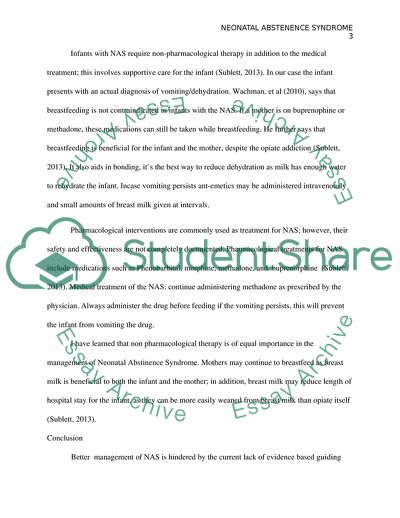Neonatal Abstinence Symdrome Essay Example | Topics and Well Written Essays - 500 words. https://studentshare.org/medical-science/1814304-neonatal-abstinence-syndrome
Neonatal Abstinence Symdrome Essay Example | Topics and Well Written Essays - 500 Words. https://studentshare.org/medical-science/1814304-neonatal-abstinence-syndrome.


